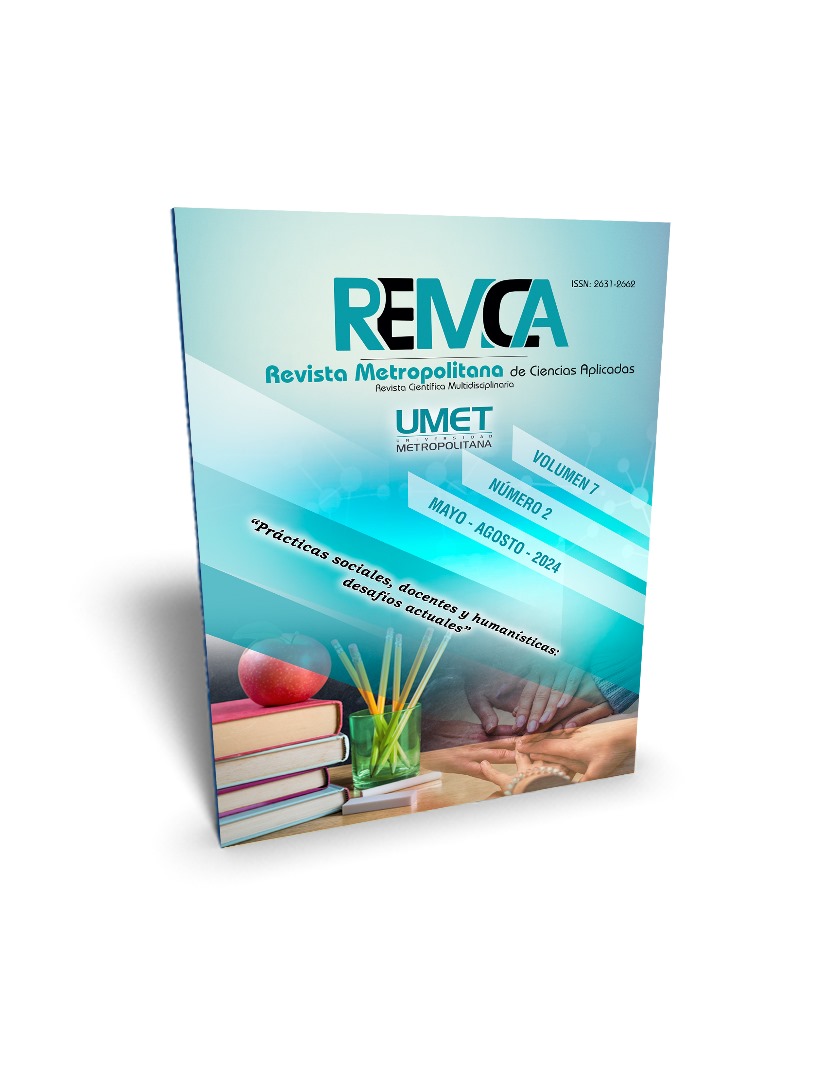Primary education teacher training. Reflections and perspectives
DOI:
https://doi.org/10.62452/82s2jz91Keywords:
Teacher training, initial teacher education, in-service teacher education, teacher practiceAbstract
Contemporary teacher training in Mexico is conditioned by the demands of the Educational Reform of the New Mexican School, in terms of the promotion of knowledge in the new generations, which transcend to situations of the socio-educational context in which they live. This implies a critical reflection based on a self-analysis that accounts for the exercise of self-diagnosis and a self-critical awareness that implies the recognition of continuous training needs throughout professional life, in order to generate better dynamics and instruments to detonate in educational alternatives that meet the own training needs and generate better links with the educational community. Some background students on teacher training are presented, as a support for initial and continuous understanding, from which professionalization processes are triggered, in which individual and collegiate reflection is revitalized, based on the experiential knowledge that emerges in the field of the processes of how to teach to learn, in order to activate cognitive processes in students, which condition the internalization and significance of their learning, as a support for continuous training processes. Therefore, different studies on the subject have been reviewed in order to identify references in the field of initial and continuing education, which allow rethinking the organization of teacher training programs in light of the demands of today's society.
Downloads
References
Ávalos, B., & Matus, C. (2010). La FID en Chile desde una óptica internacional. Informe nacional del estudio internacional IEATEDS-M. https://www.observatoriodocente.cl/index.php?page=view_recursos&langSite=es&id=455
Camargo Abello, M., Calvo, M., G., Franco Arbeláez, M. C., Vergara Arboleda, M., Londoño, S., Zapata Jaramillo, F., & Garavito Prieto, C. (2004). Las necesidades de formación permanente del docente. Educación y Educadores, (7), 79-112. https://www.redalyc.org/pdf/834/83400708.pdf
Díaz-Barriga Arceo, F. (2006). Enseñanza Situada: Vínculo entre la escuela y la vida. McGraw-Hill/Interamericana https://periodicooficial.jalisco.gob.mx/sites/periodicooficial.jalisco.gob.mx/files/ensenanza_situada_-_frida_diaz_barriga_arceo.pdf
Gaitán Riveros, C., Martínez Camargo, D. M., Gaetän Gatarayiha, S.J., Romero Ramírez, J. A., Saavedra Estupiñán, M., & Valencia, P.E. (2005). Caracterización de la Práctica Docente Universitaria “Estudio de casos: pregrado. (Tesis de Maestría). Pontificia Universidad Javeriana.
Garduño, V. (2019) Momentos clave de la profesionalización docente en México. Revista Red, (12). INEE. https://historico.mejoredu.gob.mx/momentos-clave-de-la-profesionalizacion-docente-en-mexico/
Gimeno Sacristán, J. (1997). Docencia y cultura escolar. Reformas y modelo educativo. Editorial-Instituto de estudios y Acción Social. B
Gómez, J. (2018). La formación continua del docente de la educación básica primaria en Colombia. Conrado, 14(64). http://scielo.sld.cu/scielo.php?script=sci_arttext&pid=S1990-86442018000400174
Imbernón, F. (2007). La formación y el desarrollo del profesorado: de la formación espontánea a la formación planificada. Universidad de Barcelona.
Imbernón, F. (2021). Algunas consideraciones sobre la formación el profesorado. http://www.ub.edu/obipd/wp-content/uploads/2021/05/2021.-Imbernon.-Sobre-la-formaci%C3%B3n-del-profesorado.-Apuntes-para-la-LOMLOE-la-nueva-ley-educativa-espa%C3%B1ola.pdf
Infante, M. (2010). Desafíos de la Formación Docente: Inclusión Educativa. Estudios Pedagógicos, 36(1), 287-297 https://www.scielo.cl/pdf/estped/v36n1/art16.pdf
Márquez Aragonés, A.C. (2009). La Formación Inicial para el nuevo perfil del Docente de Secundaria. Relación entre la teoría y la práctica. (Tesis Doctoral). Universidad de Málaga.
Martínez, G., & Pérez, M. (2007). Implementación de la política pública de capacitación y actualización para los docentes en servicio de educación básica. Un estudio de caso: Jalisco, 2000 a 2005. (Tesis de maestría). Facultad Latinoamericana de Ciencias Sociales.
Paukner, F., Belmar, M., & González, J. C. (2023). El desafío de formar profesores para afrontar la educación del S XXI: la reforma pendiente en Chile. Revista Convergencia Educativa, (13), 28-43.. https://doi.org/10.29035/rce.13.28
Pedraja, L. M., Araneda, C., Rodríguez, R., & Rodríguez, J. (2012). Calidad en la Formación Inicial Docente: Evidencia Empírica en las Universidades Chilenas. Formación universitaria, 5(4), 15-26. https://doi.org/10.4067/S0718-50062012000400003
Pérez Serrano, M. (2002). ¿Qué necesidades de formación perciben los Profesores? Tendencias Pedagógicas, 4. https://dialnet.unirioja.es/descarga/articulo/175737.pdf
Sánchez Ponce, C., (2013). Estructuras de la formación inicial docente Propuesta de un sistema clasificatorio para su análisis. Perfiles Educativos, 35(142),128-148. https://www.redalyc.org/articulo.oa?id=13228832009
México. Secretaría de Educación Pública. (2023). Un libro sin recetas, para la maestra y el maestro. https://drive.google.com/file/d/1JcGCTJxd5by8D3ZvU4foupwztCzl97LG/view
Vaillant, D. (2004). Construcción de la profesión docente en América Latina. Tendencias, temas y debates. Programa de Promoción Educativa en América Latina y el Caribe. http://www.preal.org/docs-trabajo/VaillantN31.pdf
Vaillant, D. (2023). Formación docente en un mundo interconectado. Revista Española de Educación Comparada, (44), 71–87. https://www.denisevaillant.com/wp-content/uploads/2024/02/37806-Texto-del-articulo-112371-1-10-20231224.pdf
Zambrano Briones, M. A., Hernández Díaz, A., & Mendoza Bravo, K. L. (2022). El aprendizaje basado en proyectos como estrategia didáctica. Revista Conrado, 18(84), 172-182. http://scielo.sld.cu/pdf/rc/v18n84/1990-8644-rc-18-84-172.pdf
Downloads
Published
Issue
Section
License
Copyright (c) 2024 Carmen Ramón Segovia-Briceño, Maritza Librada Cáceres-Mesa (Autor/a)

This work is licensed under a Creative Commons Attribution-NonCommercial-ShareAlike 4.0 International License.
Authors who publish in Revista Metropolitana de Ciencias Aplicadas (REMCA), agree to the following terms:
1. Copyright
Authors retain unrestricted copyright to their work. Authors grant the journal the right of first publication. To this end, they assign the journal non-exclusive exploitation rights (reproduction, distribution, public communication, and transformation). Authors may enter into additional agreements for the non-exclusive distribution of the version of the work published in the journal, provided that acknowledgment of its initial publication in this journal is given.
© The authors.
2. License
The articles are published in the journal under the Creative Commons Attribution-NonCommercial-ShareAlike 4.0 International License (CC BY-NC-SA 4.0). The terms can be found at: https://creativecommons.org/licenses/by-nc-sa/4.0/deed.en
This license allows:
- Sharing: Copying and redistributing the material in any medium or format.
- Adapting: Remixing, transforming, and building upon the material.
Under the following terms:
- Attribution: You must give appropriate credit, provide a link to the license, and indicate if any changes were made. You may do this in any reasonable manner, but not in any way that suggests the licensor endorses or sponsors your use.
- NonCommercial: You may not use the material for commercial purposes.
- ShareAlike: If you remix, transform, or build upon the material, you must distribute your creation under the same license as the original work.
There are no additional restrictions. You may not apply legal terms or technological measures that legally restrict others from doing anything the license permits.




